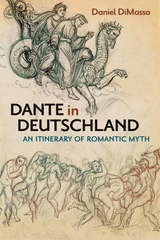
In the literature and aesthetic theory of modern times, we have witnessed the revival of the claim that the conventions and artifices of civilization are the source of many ills. Far from establishing harmonious relationships between individuals, they have sometimes legitimized forms of violence and oppression. But while conventions and artifices may be a source of evil, they are also a means by which evils can be reduced or overcome.
One of our greatest living critics, Jean Starobinski pursues this line of reflection by taking us back to the thought of the eighteenth century. Civilization, he argues, has always been entangled with barbarism. As a form of politeness, a refinement of manners, civilization was said to legitimize deceit. But aren’t the conventions of civilized living, however objectionable, a blessing in disguise? It is the task of art, he contends, to make the most of these conventions, to use the very disguises of civilization to counter the barbarism they mask. Tracing this idea through seventeenth- and eighteenth-century French literature, Starobinski charts the historical and intellectual limits of criticism itself.
These reflections are nourished by a series of sensitive and perceptive studies: the use of the word "civilization" in the Age of Enlightenment; the classical doctrine of civility and the art of flattery; fable and mythology in the seventeenth and eighteenth centuries; the relations between exile, satire, and tyranny in Montesquieu; philosophy and style in the writings of Voltaire; and the search for the remedy of the disease in the thought of Rosseau. A development and refinement of themes that have preoccupied Starobinski throughout his career, Blessings in Disguise is criticism at its best, testing its own limits and extending ours.



This volume, originally published in 1937, is reissued with a new preface and a few small corrections. A brilliant study of the continuing and changing uses of classical mythology in English poetry, it treats most of the major and many of the minor English poets since 1680 and includes a chapter on the use of myth in American verse. It provides an illuminating overview of English poetry since the end of the Renaissance.
In his Preface to the new printing, Bush briefly surveys the various approaches to classical myth over the centuries. "During the last two generations," he observes, "most of the leading British and American poets (not to mention Rilke and others) have renewed the mythic or mythological tradition with fresh power. Thus, in spite of the accumulated pressures and threats of our time, the vitality and the necessity of myth remain." He also reminisces engagingly about the writing of the book and acknowledges that after three decades he does not find a great deal in it that he would wish to change.
READERS
Browse our collection.
PUBLISHERS
See BiblioVault's publisher services.
STUDENT SERVICES
Files for college accessibility offices.
UChicago Accessibility Resources
home | accessibility | search | about | contact us
BiblioVault ® 2001 - 2024
The University of Chicago Press









